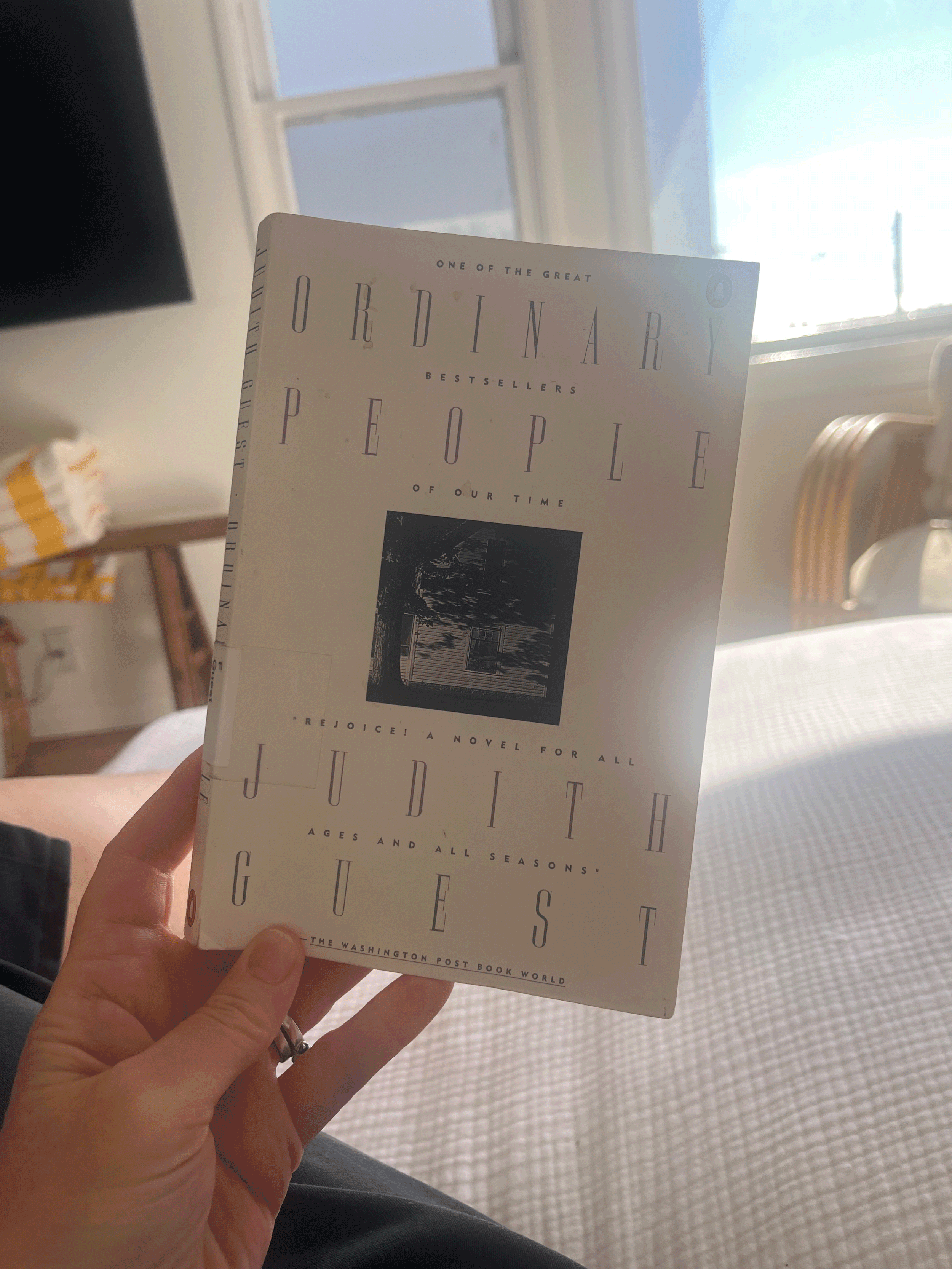Ordinary People
A novel that reads like a play that was, actually, made into an extremely popular movie directed by Robert Redford…
I’ve since looked back at some of the original reviews for Ordinary People by Judith Guest. The NYT called it “not completely successful” (how’s that for beating around the bush?) and Guest an “unsure narrator,” but this 1976 novel about a family that disintegrates after the death of one son and the suicide attempt of the other, nonetheless grabbed the public’s attention upon its publication. Was this because of the machinations of a powerful publicity department? Or because it dove into the nitty-gritty of this lopsided notion that the people of Lake Forest, IL (or substitute any other well-known affluent suburb) have it all together?
Who’s to say — although I’m sure someone could do a deep dive analysis and say a lot — but, yes, this novel felt like reading a play because of the dated dialogue (no one can help that, although I do wonder if it felt forced even half a century ago?), the ongoing descriptions of clothing, and the way that characters flit in and out to very (very) obviously prop up the drama. I genuinely could picture these characters on a stage. I could hear their footsteps on a stage. I could envision the curtain call. I’d watch the play.
The reason I’m fixated on this is-it-a-play-or-is-it-a-novel situation is that I’d rather be enveloped by a novel than have it “presented” to me. An old writing adage instructs would-be authors to “show, don’t tell.” But maybe the best books go beyond that. They don’t merely “show” (that’s what a play’s for) — they sneakily persuade and they stealthily unfold so that when you’re done, you kind of find yourself surprised and go, “Huh. Wow.”
{Look below see an excerpt of the aforementioned review via the NYT’s TimesMachine}
originally published on instagram

